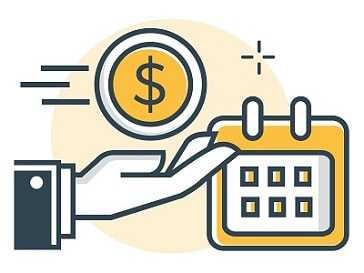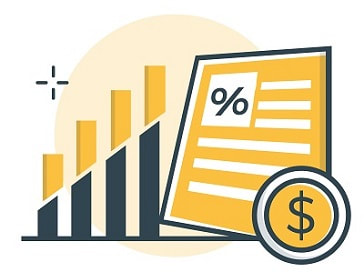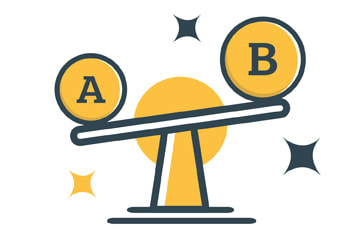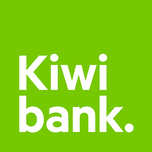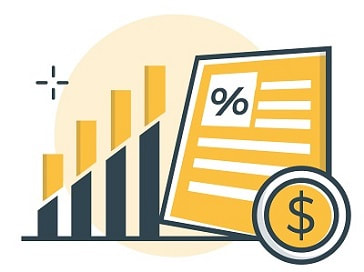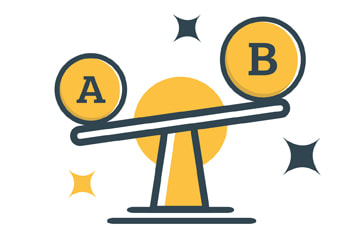Business Line of Credit - The Definitive New Zealand Guide
Does your business need a line of credit? Our guide explains the costs, pros and cons, and alternatives and shortlists trusted line of credit lenders who are genuinely willing to lend.
Updated 20 July 2024
Summary:
To explain lines of credit in detail and help you assess your options, our guide explains covers:
- With the cost of borrowing skyrocketing in recent months off the back of the Reserve Bank of New Zealand's decision to raise the official cash rate (OCR) continually, many Kiwi small to medium enterprises (SMEs) will be assessing their economic situation and figuring out whether they can continue to make ends with talk of an upcoming recession.
- One of the options available to SMEs is business lines of credit, which can act as a short-term liquidity option for companies under cost pressure. However, business lines of credit can be confusing, especially regarding the availability, fees, rates, and costs associated with taking out a business line of credit. This confusion is a significant point of uncertainty for many Kiwi business owners.
- Most banks in New Zealand offer business lines of credit, but there are several different types of business lines of credit available, including secured and unsecured lines of credit and revolving and non-revolving lines of credit.
- The costs associated with a business line of credit include the interest rate, fees for setting up the loan (known as the establishment fees), annual fees and missed payment penalties.
- Business lines of credit can be a useful financial tool for managing ongoing expenses or covering unexpected expenses. Still, there's a serious risk of over-borrowing and accumulating more debt than you can handle.
To explain lines of credit in detail and help you assess your options, our guide explains covers:
MoneyHub Founder Christopher Walsh comments on the realities of using a Line of Credit in your business"Business lines of credit are a financial product that allows businesses to access a set amount of funds they can use as needed. They're a popular product offered by banks and other financial institutions. In many cases, they are a very useful financial tool for managing ongoing expenses, covering unexpected expenses, and having a backup source of funds".
"And, while they can be useful, they're not without risks. It's important to carefully manage borrowing and only borrow what you can afford to repay to avoid the risks of over-borrowing and defaulting on loan payments. It's too easy to get a line of credit and then max it out without the cashflows to make the repayments. When this happens, you're (usually) stuck with a high-interest rate that eats into your margins". "A line of credit has a lot of upsides, but they need to be treated carefully and accessed only in emergencies - once activated and drawn down on, you're incurring interest costs that can quickly add up". |
Christopher Walsh
MoneyHub Founder |
What is a Business Line of Credit?
A business line of credit is a financial product that allows borrowers to access a set amount of funds they can use as needed — most banks in New Zealand offer business lines of credit. Business lines of credit are a popular financial tool for Kiwi businesses that need access to funds on an ongoing basis or want a backup source of money for unexpected expenses. Business lines of credit work similarly to credit cards in that borrowers can use the funds as needed. Still, unlike a credit card, the interest rate, loan amount, fee structure and nature of the loan are substantially different (which we'll get into below).
What are the different types of business lines of credit available:
There are several types of business lines of credit available:
1. Secured versus unsecured business lines of credit.
A secured business line of credit is backed by collateral, such as a vehicle, plant or equipment. The bank can seize the collateral to recoup their losses if the borrower cannot make their loan payments. In contrast, an unsecured business line of credit is not backed by collateral and is based on the borrower's creditworthiness. Generally, secured lines of credit are associated with lower interest rates compared to unsecured lines of credit.
2. Revolving versus non-revolving business lines of credit.
A revolving business line of credit is a type of line of credit that allows borrowers to borrow and repay funds continuously. This continuous funding means that Kiwi businesses can use the funds as needed and repay them over time, rather than needing to reapply for a loan each time they need more money. On the other hand, a non-revolving line of credit has a fixed borrowing limit and a specific repayment period. Kiwi businesses can access the funds as needed, but once they’ve reached the borrowing limit, they’ll need to repay the loan before borrowing more.
1. Secured versus unsecured business lines of credit.
A secured business line of credit is backed by collateral, such as a vehicle, plant or equipment. The bank can seize the collateral to recoup their losses if the borrower cannot make their loan payments. In contrast, an unsecured business line of credit is not backed by collateral and is based on the borrower's creditworthiness. Generally, secured lines of credit are associated with lower interest rates compared to unsecured lines of credit.
2. Revolving versus non-revolving business lines of credit.
A revolving business line of credit is a type of line of credit that allows borrowers to borrow and repay funds continuously. This continuous funding means that Kiwi businesses can use the funds as needed and repay them over time, rather than needing to reapply for a loan each time they need more money. On the other hand, a non-revolving line of credit has a fixed borrowing limit and a specific repayment period. Kiwi businesses can access the funds as needed, but once they’ve reached the borrowing limit, they’ll need to repay the loan before borrowing more.
How do business lines of credit differ from general business term loans?
A business line of credit is a loan that gives businesses access to a set amount of funds they can use as needed. Generally, business lines of credit have lower interest rates than other types of loans, have a variable interest rate that shifts depending on what the bank sets as its benchmark rate and may have more flexible repayment terms. On the other hand, a business term loan is a type of loan that gives businesses the ability to borrow a set amount of money to be used for a specific purpose, such as expanding the business or purchasing equipment. Business term loans typically have fixed terms, including a fixed interest rate, a specific repayment period, and a fixed monthly payment.
There are two key differences between business lines of credit and business term loans:
1. Borrowing flexibility.
2. Interest rate.
To help make sense of the differences, we publish a table of the key factors that differentiate business lines of credit and business term loans below. Note that the information in the table applies to most banks but may differ between each specific bank.
There are two key differences between business lines of credit and business term loans:
1. Borrowing flexibility.
- One key difference between a business line of credit and a business term loan is the flexibility of the borrowing and repayment process.
- Business lines of credit allow businesses to borrow and repay funds as needed, while business term loans have fixed terms and a specific repayment period.
2. Interest rate.
- Another difference is the interest rate. Generally, business lines of credit are secured by collateral, such as a car or equipment, so they usually carry lower interest rates than business term loans. On the other hand, business term loans are usually offered based on a business’s ability to generate cash flow and pay back the loan reliably and may or may not be secured against collateral. Because of these reasons, business term loans can charge higher interest rates than business lines of credit.
To help make sense of the differences, we publish a table of the key factors that differentiate business lines of credit and business term loans below. Note that the information in the table applies to most banks but may differ between each specific bank.
Category |
Business Lines of Credit |
|
Loan Requirements or Prerequisites |
|
|
Loan Length |
Open-ended (you can take out or stop the loan at any time). |
Fixed periods generally range from 12-18 months. |
Ability to re-draw |
Yes |
No, you will need to reapply for a new business term loan if you wish to take another one out. |
Interest accruable |
Interest only accumulates on the balance of the line of credit you draw down on. |
Fees and interest accrue on the total term loan balance. |
Interest rate |
Generally, more favourable (lower) interest rates are compared to credit cards, especially if secured against an asset. |
Usually calculated by taking the benchmark rate set by a bank and adding margin. |
Typical borrowing amount |
$10,000 - $100,000 |
$50,000 - $500,000 |
Approval time |
Generally, within 24 hours |
Within 1-2 business days |
Maximise Your Business Potential with MoneyHub's Top-Rated Lender Choice
|
If you're looking for a business loan or line of credit, choosing a lender that offers competitive rates, fair terms and wants to lend is essential. In our search for such lenders, one name that stands out is Prospa.
Prospa: A Practical Choice for Business Borrowers Our business loan research indicates that Prospa often offers lower interest rates and fees than many traditional lenders, helping businesses manage costs effectively. We have seen it become popular with many MoneyHub users who are business owners. Straightforward Application Process Applying with Prospa is simple and takes just a few minutes. There's no commitment required when you apply, so you're free to consider your options without any pressure. Why Comparing Rates Matters We always suggest business owners compare different loan offers. Applying with Prospa is free, and by comparing, you increase your chances of finding a loan that suits your business's needs and budget. Long-Term Impact of Your Interest Rate The interest rate on your loan will influence your repayments over time. Considering how this will affect your business finances in the long run is important. Our Advertising Transparency MoneyHub may receive a referral commission, but this does not influence our recommendations. Our priority is to provide reliable and unbiased information. Interest rates and assessment times can vary based on your circumstances. Get Started Visit Prospa to explore their offerings and see if they meet your business lending needs. Remember, making an informed choice will almost always make a big difference to your business's financial future. |
Christopher Walsh
MoneyHub Founder Our Top Business Loans Provider:
|
Compare Line of Credit Facilities, Rates and Terms Offered by Banks and Specialist Lenders
Business lines of credit are a type of financial product offered by banks that allow businesses to borrow money up to a pre-approved limit. This type of financing is ideal for businesses that need access to flexible, short-term financing to cover expenses such as inventory, equipment, or unexpected costs.
In New Zealand, most banks offer business lines of credit. Some of the major banks that offer lines of credit include ANZ, ASB, BNZ and Kiwibank. In addition, specialist business lenders also offer business lines of credit. We analyse some of the specific details and examples of business lines of credit offered by banks and specialist lenders below:
In New Zealand, most banks offer business lines of credit. Some of the major banks that offer lines of credit include ANZ, ASB, BNZ and Kiwibank. In addition, specialist business lenders also offer business lines of credit. We analyse some of the specific details and examples of business lines of credit offered by banks and specialist lenders below:
ASB
ASB offers a revolving credit facility (RCF) for business and rural farmers to help companies manage cash flow and take advantage of new opportunities by providing ongoing access to funding. ASB offer three distinct business lines of credit:
1. ASB Flexible Finance Facility
The ASB Flexible Finance Facility is designed to help small to medium-sized businesses (where residential property is the main security) with cash flow fluctuations.
2. ASB Commercial Credit Facility
A Commercial Credit Facility is ideal for Kiwi businesses with larger funding requirements. The Commercial Credit Facility is designed to help larger Kiwi businesses simplify funding into one sole facility that can be accessed and paid off at any point.
3. ASB Rural Credit Facility
For Kiwi farming businesses with high cash flow demands and seasonal variation that require larger funding requirements, an ASB Rural Credit Facility can help smooth out the expected volatility with farming businesses.
Interest is only charged on the loan amount used, not the entire approved limit. ASB's standard lending criteria and terms apply. In addition, there may be Establishment, Undrawn and Line fees that apply. For more detailed information on ASB's revolving lines of credit, visit their website. Additionally, you can find ASB’s most accurate business and rural loan interest rates published here.
ASB offers a revolving credit facility (RCF) for business and rural farmers to help companies manage cash flow and take advantage of new opportunities by providing ongoing access to funding. ASB offer three distinct business lines of credit:
1. ASB Flexible Finance Facility
The ASB Flexible Finance Facility is designed to help small to medium-sized businesses (where residential property is the main security) with cash flow fluctuations.
- Credit limits: Limits for the ASB Flexible Finance Facility fluctuate between $50,000 - $750,000.
- Debit interest: The ASB Flexible Finance Facility interest is calculated daily based on the Housing Variable interest rate (plus a margin) and is charged monthly.
2. ASB Commercial Credit Facility
A Commercial Credit Facility is ideal for Kiwi businesses with larger funding requirements. The Commercial Credit Facility is designed to help larger Kiwi businesses simplify funding into one sole facility that can be accessed and paid off at any point.
- Credit limits: Limits for the ASB Commercial Credit Facility start from $500,000 minimum.
- Debit interest: The ASB Commercial Credit Facility interest is calculated daily based on the Floating Corporate Indicator rate (plus a margin) and is charged monthly.
3. ASB Rural Credit Facility
For Kiwi farming businesses with high cash flow demands and seasonal variation that require larger funding requirements, an ASB Rural Credit Facility can help smooth out the expected volatility with farming businesses.
- Credit limits: Limits for the ASB Rural Credit Facility start from $500,000.
- Debit interest: The ASB Rural Credit Facility interest is calculated daily based on the Floating Corporate Indicator rate (plus a margin) and is charged monthly.
Interest is only charged on the loan amount used, not the entire approved limit. ASB's standard lending criteria and terms apply. In addition, there may be Establishment, Undrawn and Line fees that apply. For more detailed information on ASB's revolving lines of credit, visit their website. Additionally, you can find ASB’s most accurate business and rural loan interest rates published here.
ANZ
ANZ's business line of credit is called the ANZ Business Flexible Facility. This business line of credit is a short-term working capital solution for New Zealand businesses.In summary:
ANZ's business line of credit is called the ANZ Business Flexible Facility. This business line of credit is a short-term working capital solution for New Zealand businesses.In summary:
- The ANZ Business Flexible Facility is more flexible than a business term loan and is generally more cost-effective (lower interest) than a traditional overdraft account.
- One of the key facts you need to know about the ANZ Business Flexible Facility is that the line of credit is collateralised. In other words, the ANZ Business Flexible Facility will use your home or other residential property as security (first registered mortgage).
- The ANZ Business Flexible Facility has a monthly account fee and an application fee (with a minimum of $250). However, there are no transaction fees. In addition, interest is only charged on the loan amount used, not the entire approved limit.
- A detailed breakdown of the fees and rates for the ANZ Business Flexible Facility can be found here. Additionally, you can find ANZ’s most accurate interest rate data on ANZ’s Business Flexible Facility here.
BNZ
- BNZ's revolving line of credit targeting SMEs is called the BNZ CreditPlus. BNZ's CreditPlus facility provides the flexibility to draw down funds at any time and for any purpose. As a result, BNZ's CreditPlus facility reduces the interest you pay by only drawing down what your business needs. In addition, BNZ's CreditPlus revolving credit facility is secured by collateral (either the value of your plant, vehicles or equipment) resulting in a lower interest rate than other unsecured lines of credit.
- Continuous funding: One of the key features of the CreditPlus revolving credit facility is the ability to borrow and repay funds continuously. This continuous funding means that borrowers can use the funds as needed and repay them over time, rather than needing to reapply for a loan each time they need more money.
- Flexibility: CreditPlus has no fixed duration or term, and there aren't any penalties for early partial or total repayment (in contrast to some other bank lines of credit). To qualify for the CreditPlus revolving credit facility, borrowers must have good credit and a stable income.
- The BNZ CreditPlus revolving credit facility has a minimum loan amount of $500,000 and a variable interest rate that changes depending on the current benchmark interest rate Interest is only charged on the amount of the loan that's used, not the entire approved limit. The BNZ CreditPlus revolving credit facility has fees associated with drawdowns or repayments. However, establishment fees may apply. Find the latest information here for a comprehensive table of BNZ's current rates on their revolving lines of credit.
Kiwibank
Kiwibank's business line of credit is called the Kiwibank revolving credit loan. This business line of credit is Kiwibank's most flexible business loan, acting like a large overdraft account. There aren't any fixed repayment periods, and Kiwi businesses can make payments as and when suits the business in question.
A key differentiator that makes Kiwibank unique compared to the other banks on this list is that the New Zealand Government owns 100% of Kiwibank. In contrast, ASB, ANZ, BNZ, and Westpac all have Australian parent companies.
Regarding interest rates & fees:
For more information on Kiwibank’s holistic borrowing options, visit their dedicated page.
Kiwibank's business line of credit is called the Kiwibank revolving credit loan. This business line of credit is Kiwibank's most flexible business loan, acting like a large overdraft account. There aren't any fixed repayment periods, and Kiwi businesses can make payments as and when suits the business in question.
A key differentiator that makes Kiwibank unique compared to the other banks on this list is that the New Zealand Government owns 100% of Kiwibank. In contrast, ASB, ANZ, BNZ, and Westpac all have Australian parent companies.
Regarding interest rates & fees:
- Interest rates: will vary depending on the unique circumstances of the Kiwi business. You can find Kiwibank’s most current business loan interest rates here.
- Application fee: When you apply for a new or additional loan or overdraft with Kiwibank, a minimum $25 fee for loans and a $75 fee for overdrafts will apply.
For more information on Kiwibank’s holistic borrowing options, visit their dedicated page.
Prospa
Prospa offers a business line of credit with funding between $2,000 and up to $150,000. Prospa lines of credit have a 24 month term with the option to renew, and you'll only pay interest on the funds you use.
Fees include a Weekly Service Fee (charged from the date of settlement), interest on the funds you have drawn down, charged at a fixed rate, calculated daily based on your drawn balance. Repayments are made by Direct Debit to your business account; any unsuccessful attempt will attract a $25 Dishonour Fee, as well as a Late Payment Fee.
You can apply for a Prospa Line of Credit if you:
For more information on Prospa's Business Line of Credit, visit their website.
Prospa offers a business line of credit with funding between $2,000 and up to $150,000. Prospa lines of credit have a 24 month term with the option to renew, and you'll only pay interest on the funds you use.
Fees include a Weekly Service Fee (charged from the date of settlement), interest on the funds you have drawn down, charged at a fixed rate, calculated daily based on your drawn balance. Repayments are made by Direct Debit to your business account; any unsuccessful attempt will attract a $25 Dishonour Fee, as well as a Late Payment Fee.
You can apply for a Prospa Line of Credit if you:
- Are a New Zealand Citizen (or permanent resident)
- Are over 18 years, own a New Zealand business with a valid NZBN (NZBN not needed for sole trader applications)
- Can demonstrate 6 months of trading for a new business (or 3 months if you have purchased an existing business)
For more information on Prospa's Business Line of Credit, visit their website.
Maximise Your Business Potential with MoneyHub's Top-Rated Lender Choice
|
If you're looking for a business loan or line of credit, choosing a lender that offers competitive rates, fair terms and wants to lend is essential. In our search for such lenders, one name that stands out is Prospa.
Prospa: A Practical Choice for Business Borrowers Our business loan research indicates that Prospa often offers lower interest rates and fees than many traditional lenders, helping businesses manage costs effectively. We have seen it become popular with many MoneyHub users who are business owners. Straightforward Application Process Applying with Prospa is simple and takes just a few minutes. There's no commitment required when you apply, so you're free to consider your options without any pressure. Why Comparing Rates Matters We always suggest business owners compare different loan offers. Applying with Prospa is free, and by comparing, you increase your chances of finding a loan that suits your business's needs and budget. Long-Term Impact of Your Interest Rate The interest rate on your loan will influence your repayments over time. Considering how this will affect your business finances in the long run is important. Our Advertising Transparency MoneyHub may receive a referral commission, but this does not influence our recommendations. Our priority is to provide reliable and unbiased information. Interest rates and assessment times can vary based on your circumstances. Get Started Visit Prospa to explore their offerings and see if they meet your business lending needs. Remember, making an informed choice will almost always make a big difference to your business's financial future. |
Christopher Walsh
MoneyHub Founder Our Top Business Loans Provider:
|
Should New Zealand Small Businesses Avoid Business Lines of Credit?
It's not necessarily the case that most Kiwi businesses should avoid lines of credit. While lines of credit can be a useful financial tool for some situations, they carry unique risks and may not be the best option for all businesses and industries. Here are some factors to consider when deciding if a business line of credit is right for you:
- Your business’s financial needs: If your business needs access to funds on an ongoing basis or wants a backup source of money for unexpected expenses, a business line of credit may be a good option.
- Your business’s creditworthiness: Lines of credit are typically based on the borrower's creditworthiness, so if your business has good credit and stable cash flow, you may be more likely to qualify for a business line of credit.
- Your business’s ability to repay the loan: It's important to consider your ability to repay the loan before taking out a business line of credit. If you're not confident in your business's ability to make the loan payments on time, it may be better to consider other options.
- The terms of the loan: It's important to carefully review the relevant loan terms, including the interest rate, fees, and repayment terms.
Line of Credit Pros and Cons
What are the benefits of using business lines of credit?
What are the drawbacks of using business lines of credit?
While lines of credit can be a useful financial tool, there are also some drawbacks to consider, including:
- Flexibility: Business lines of credit allow borrowers to access funds as needed, rather than needing to apply for a new loan each time they need money.
- Convenience: Business lines of credit are convenient because borrowers can simply draw on the funds that are available to them, rather than needing to reapply for a loan each time they need money (which is a downside of taking out other forms of business debt, such as a business term loan).
- Potential for lower interest rates: Because business lines of credit are typically secured by collateral, they may have lower interest rates than unsecured loans or credit cards.
- Easy to qualify for: Depending on the lender and the loan terms, business lines of credit may be easier to qualify for than other types of loans.
What are the drawbacks of using business lines of credit?
While lines of credit can be a useful financial tool, there are also some drawbacks to consider, including:
- Risk of overborrowing: Because business lines of credit allow borrowers to access funds continually, there's a risk of overborrowing and accumulating more debt than a business can handle.
- Potential for higher interest rates: While secured business lines of credit may have lower interest rates than unsecured loans, many are still variable rates and will fluctuate with the broader market. Additionally, the rates on business lines of credit may still be higher than other loans, such as mortgages or personal loans.
- High fees: Business lines of credit may come with fees for setting up the loan (known as establishment fees), annual fees and penalties for missed payments which can all add to the overall cost of borrowing for a business.
Frequently Asked Questions
Are business lines of credit and credit cards the same thing?
While a business line of credit and a credit card may seem similar, the two have some key differences. Generally, a business line of credit will be secured against an asset, whereas a credit card will be unsecured. Another main difference between a business line of credit and a credit card is that a business line of credit typically has a lower interest rate than a credit card. However, credit cards are typically more widely accepted and offer more convenience than lines of credit.
What are some other business lines of credit providers in New Zealand?
Aside from the largest key New Zealand banks described above, here are some other examples of business lines of credit providers in New Zealand:
Are business lines of credit dangerous?
Business lines of credit can be a useful financial tool, but like any loan, they come with risks. One of the main risks of using a business line of credit is the risk of over-borrowing and accumulating more debt than you can handle. Therefore, it's important to carefully manage your business line of credit and only borrow what you can afford to repay.
Another risk to consider is the risk of defaulting on your loan payments. If you default on your loan payments, the lender may be able to seize the collateral that you used to secure the loan. This seizure can lead to significant financial loss, so it's important to ensure that you can make your loan payments on time.
Another risk to consider is the risk of defaulting on your loan payments. If you default on your loan payments, the lender may be able to seize the collateral that you used to secure the loan. This seizure can lead to significant financial loss, so it's important to ensure that you can make your loan payments on time.
What type of fees are associated with business lines of credit?
Business lines of credit in New Zealand may have a variety of fees associated with them, including:
- Set-up (establishment) fees: The bank charges these fees to cover the cost of setting up the loan.
- Annual fees: Some banks charge an annual fee to maintain the business line of credit.
- Interest expense: As mentioned above, interest is charged on the loan amount used, not the entire approved limit.
- Late fees: Borrowers may be charged a late fee if they do not make their loan payments on time.
- Overlimit fees: Borrowers may be charged an over-limit fee if they exceed their approved credit limit.
What are the main differences between a business line of credit and an instalment loan?
A business line of credit is a loan that gives businesses access to a set amount of funds they can use as needed. Business lines of credit typically offer lower interest rates than other types of loans and may have more flexible repayment terms.
On the other hand, an instalment loan allows borrowers to borrow a set amount of money and make regular payments over a specific period to repay the loan. Instalment loans typically have fixed terms, including a fixed interest rate, a specific repayment period, and a fixed monthly payment.
On the other hand, an instalment loan allows borrowers to borrow a set amount of money and make regular payments over a specific period to repay the loan. Instalment loans typically have fixed terms, including a fixed interest rate, a specific repayment period, and a fixed monthly payment.
How long do you have to be in business to get a line of credit?
The length of time that a business must be in operation to qualify for a business line of credit will vary depending on the lender and the specific terms of the loan. For example, some lenders may require businesses to be in operation for a certain number of years, while others may have more flexible requirements. In general, lenders will typically consider the following factors when evaluating a business's eligibility for a line of credit:
- Credit history: Lenders will typically review the business's credit history to determine its creditworthiness. This review includes checking the business's credit score and any past credit history, such as any loans or credit cards the business has taken out.
- Financial stability: Lenders will also consider the financial stability of the business, including its revenue, profitability, and cash flow.
- Collateral: Some lenders may require businesses to provide collateral to secure the line of credit, such as a car or a home.
- Business plan: Lenders may also review the business plan to understand the business's goals and how the line of credit will be used to support those goals.
Maximise Your Business Potential with MoneyHub's Top-Rated Lender Choice
|
If you're looking for a business loan or line of credit, choosing a lender that offers competitive rates, fair terms and wants to lend is essential. In our search for such lenders, one name that stands out is Prospa.
Prospa: A Practical Choice for Business Borrowers Our business loan research indicates that Prospa often offers lower interest rates and fees than many traditional lenders, helping businesses manage costs effectively. We have seen it become popular with many MoneyHub users who are business owners. Straightforward Application Process Applying with Prospa is simple and takes just a few minutes. There's no commitment required when you apply, so you're free to consider your options without any pressure. Why Comparing Rates Matters We always suggest business owners compare different loan offers. Applying with Prospa is free, and by comparing, you increase your chances of finding a loan that suits your business's needs and budget. Long-Term Impact of Your Interest Rate The interest rate on your loan will influence your repayments over time. Considering how this will affect your business finances in the long run is important. Our Advertising Transparency MoneyHub may receive a referral commission, but this does not influence our recommendations. Our priority is to provide reliable and unbiased information. Interest rates and assessment times can vary based on your circumstances. Get Started Visit Prospa to explore their offerings and see if they meet your business lending needs. Remember, making an informed choice will almost always make a big difference to your business's financial future. |
Christopher Walsh
MoneyHub Founder Our Top Business Loans Provider:
|
Related Guides:
- Invoice Finance
- Business Loans
- Business Loan Calculator
- Business Borrowing Options
- Small Business Loans
- Operating Leases
- Finance Leases
- Operating Leases vs Financing Leases
- Prospa Business Loans Review
- Bizcap Business Loans Review
- Vehicle Leasing
- Business Credit Cards
- Business Insurance
- Public Liability Insurance
- Essential Money-Saving Tips For Businesses
- How to Start a Business in New Zealand
- Get Debtors to Pay Overdue Invoices

